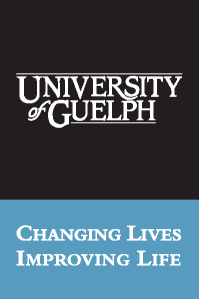Rachel Salt, Brianne Brady, and Anne Bergen, Institute for Community Engaged Scholarship, University of Guelph, www.theresearchshop.ca
Knowledge mobilization is an emerging field of practice, and there are currently relatively few explicit knowledge mobilization training opportunities for undergraduate and graduate students. However, this perceived gap is due, in part, to a naming problem – although relatively few students are aware of jargon related to KTT and KMb, students engage in KTT and KMb activities relatively often. At the Institute for Community Engaged Scholarship at the University of Guelph, we are trying to overlay the vocabularies associated with KMb and KTT on student work related to curating, sharing, and exchanging information. In some cases, this takes the form of social media accounts, but this can also relate to logistics surrounding intra-organizational KMb – in this case, our in-house updates to graduate student interns. We present here two reflections on both beginning KMb work and labeling that work as KMb. This week we hear from Brianne Brady.
La mobilisation des connaissances (MdC) est un domaine qui émerge à peine dans le champ universitaire, et il existe à l’heure actuelle assez peu de possibilités de formation destinées aux étudiants des universités qui lui soient explicitement consacrées. Cependant, cette perception d’un manque est attribuable en partie à un problème de dénomination : bien que le jargon de la mobilisation, de la transmission ou de l’application des connaissances ne soit familier qu’à un nombre relativement restreint d’étudiants, ceux-ci mènent pourtant assez souvent des activités qui relèvent de ces domaines. À l’Université de Guelph, l’Institute for Community Engaged Scholarship s’efforce donc de recouper le vocabulaire de la mobilisation et de la transmission des connaissances avec celui de travaux d’étudiants qui portent sur l’organisation, la diffusion et l’échange d’information. Dans certains cas, cela prend la forme de comptes rendus dans les médias sociaux. Mais cela peut concerner également la logistique de la MdC au sein d’une même organisation, et prendre la forme, comme c’est le cas ici, des mises à jour que nous préparons à l’interne pour nos stagiaires des cycles supérieurs. Les deux commentaires que nous présentons abordent à la fois les premières étapes d’un travail de MdC et la reconnaissance de ce travail en tant que mobilisation des connaissances. Nous accueillons cette semaine Brianne Brady.
Knowledge Mobilization Experience From an Undergraduate Student’s Perspective – Brianne Brady
 I am a third year undergraduate Bachelor of Science student majoring in Psychology: Brain and Cognition with a minor in Family and Child Studies at the University of Guelph. This summer I had the amazing opportunity to work as a knowledge mobilization assistant. I worked for an incredible individual who was passionate about her job as a knowledge mobilization specialist and explaining what knowledge mobilization is all about.
I am a third year undergraduate Bachelor of Science student majoring in Psychology: Brain and Cognition with a minor in Family and Child Studies at the University of Guelph. This summer I had the amazing opportunity to work as a knowledge mobilization assistant. I worked for an incredible individual who was passionate about her job as a knowledge mobilization specialist and explaining what knowledge mobilization is all about.
I worked for the Institute for Community Engaged Scholarship at the University of Guelph, in Guelph, Ontario. I facilitated the distribution of information and updates through email to graduate student interns. The graduate students were interns who volunteered about five hours a week in community-based research and knowledge mobilization positions. I compiled information about new and upcoming opportunities potentially of interest to the graduate students. I used email communication to transmit the information from those who sent it to me to those who could benefit from having the information. The graduate student interns were sent information about upcoming jobs, volunteer positions, conferences and other opportunities in knowledge mobilization.
Working as a knowledge mobilization assistant, I gained many new experiences and new skills. My communication skills were enhanced through this experience as I used email communications to relay the information. My organization skills improved through my experience this summer as I had to organize the information is a coherent manner. I gained a basic understanding of the importance and advantages of sharing knowledge and research between individuals and organizations. I learned how to effectively compile information and organize the information. I gained skills in knowledge mobilization and I gained skills in understanding how to connect people and information.
Through my experience as a knowledge mobilization assistant, I gained a basic understanding of the importance and advantages of sharing knowledge and research between individuals and organizations. This summer, I experienced the bridging of the gap between knowledge and application. Working as a knowledge mobilization assistant I also gained a better understanding of the opportunities available within my field of study. This experience allowed me to discover knowledge mobilization as an entire new field of work that I did not previously know about. I discovered this interesting field which I might now purse as I further my education. Knowledge mobilization is an amazing area of work because it helps bridge the gap between people and information as well as it connects people. I learned about how when people share information it creates a community of people and everyone within the community benefits from the information sharing. When people share information everyone involved benefits from the connections and information and this I learned through my experience as a knowledge mobilization assistant this summer.
This experience was truly an enriching experience and the best experience I have had thus far in my undergraduate degree.